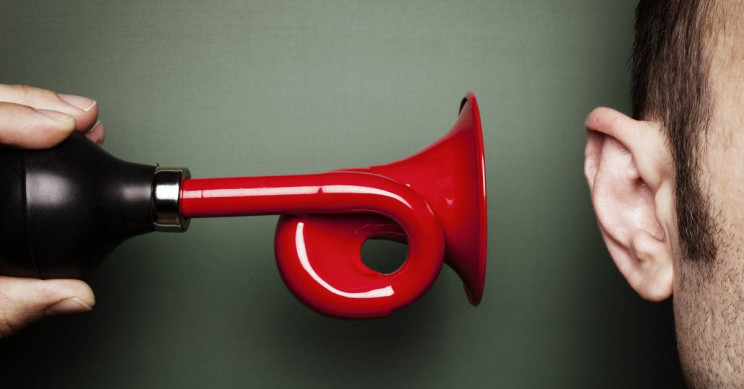Noise pollution might be worse than you think it is!

Approximately 22 million adults in Europe are directly affected by noise pollution that comes from traffic, industry, aircraft, or railways. Another survey found that Guangzhou in China had the worst noise pollution followed by Delhi, Cairo, Mumbai, Istanbul, and Beijing.
Severe levels of noise pollution and prolonged exposure to such noise lead to reduced performance in cognitive skills in children, disturbed sleep, adverse effects on metabolism and cardiovascular health, etc.
Moreover, studies have shown that school children living near airports or railway stations have problems in learning. Hence, it is evident that there are already some adverse effects of noise pollution.
However, to deeply understand this subject, it is essential to understand what is pollution?
Understanding the very meaning of pollution
Well, an easy pollution definition would say that it is the process of introducing anything in the environment that is harmful. It can be materials that pollute the air such as volcanic ash, smoke from factories, accumulation of garbage, the noise created by factories, etc.
The world is suffering from different kinds of pollution, leading to a toxic environment harmful to human health. Pollution is a global problem, but people often think of air or water pollution when discussing types of pollution.
However, as already mentioned, noise pollution has some severe effects too.
So, before getting into the details, let’s check out noise pollution definition as well as some of the significant causes of noise pollution. Noise pollution is defined as exposure to high sound levels regularly.
This kind of exposure can lead to adverse health effects on humans as well as other organisms that live in such areas. According to the standards of the World Health Organization, any sound which is below 70 dB does not damage human beings or any other organism.
However, if someone is exposed to a sound of more than 85 dB for more than 8 hours regularly, it is considered hazardous. People who live close to railway stations, roads or highways are likely to be exposed to that amount.
Some of the most prominent examples of agents causing noise pollution are vehicles, airplanes, factories, trains, loud music, etc. Hence, you know what things to avoid if you want to protect yourself from different types of pollution.
Effects of noise pollution
After having a look at the causes and assessing if you have noise pollution around you, let’s discuss in detail some of the most evident effects of noise pollution on the environment, humans as well as animals!
Sleeping disorder
Sleeping disorders are widespread effects of noise pollution on both humans and animals. Without realizing, the human body and mind get stressed when exposed to extreme noise.
It works similarly with animals. As a result, lack of proper sleep is responsible for other problems like fatigue and difficulties in concentration.
Cardiovascular issues
When a person is exposed to hazardous levels of noise, it disturbs the heart, and it starts beating faster, which leads to an increase in blood pressure. This also leads to a release of adrenaline and cortisol.
Therefore, regular exposure to high levels of noise increases the chances of a heart attack or other cardiovascular diseases.
Hearing disorder
Hearing disorders are one of the most common effects on humans and animals when regularly exposed to more than 85 dB of sound. It is also known to have impacted the hearing capacity of whales and dolphins in the ocean.
Noise from drilling machines, ships and others are responsible for noise pollution in the oceans.
Cognitive issues & behavioral changes
Noise pollution also affects brain responses. Similar to all other sound waves, too much noise also goes to the brain and leads to lower response rates as well as making the mind dull. Moreover, it also affects the mood of a person or even an animal, making them more agitated.
Overall irritation levels increase due to noise pollution and people tend to become less and less patient.
What can we do to prevent noise pollution?
Here are some ways of preventing noise pollution:
– Stay in a green neighborhood because trees are known to reduce the sound levels from 5 to 10 dB
– Use earplugs when you are in a noisy area because it reduces (if not completely shuts down) the overall noise of the surroundings
– Switch off all electrical appliances at home before going to bed
– Get your vehicle checked regularly and lubricate them well so that it doesn’t produce too much noise
– Keep checking the noise levels around you and limit the sounds that you produce
– Use proper noise absorbents in machines that produce too much noise
– Keep the volume of your television, radio, or music system low
– Try to avoid going to areas that are too noisy
With the help of some of these standard measures, you can easily prevent noise pollution. You must also take proper efforts not to increase the overall levels of noise pollution.
The adverse effects of noise pollution are highly evident. We must make every effort to reduce it and not expose ourselves to areas that are close to a noisy factory, airport, or train station.
It is also imperative to protect children and older people from noise pollution because they are more sensitive and are likely to suffer more.
Article Credit: interestingengineering
